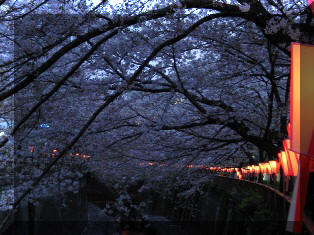

Iconic Japanese Women Writers
By Molly Kaiser for The J-Pop Exchange
Japan has one of the oldest literary traditions in the world, dating back to the year 700. Women, in particular, have shaped this literary tradition. In fact, what’s widely considered the world’s first novel “The Tale of Genji” was penned by a Japanese woman! Although female writers in Japan weren’t widely recognized until the early 20th century, their contributions are far-reachingHere are just a few Japanese women writers who made an indelible mark on the country – and the world – with their words.
Murasaki Shikibu (973 – 1014)
Murasaki Shikibu is the author of what’s widely considered the oldest novel, “The Tale of Genji.” Her real name is unknown – it was typical for a daughter’s name to go unrecorded in that time. She was born into the powerful Fujiwara family and served the empress with her writing skills, beginning in 1006. “The Tale of Genji” is about the son of the emperor and a concubine, Hikaru Genji, and his pursuit of a career as an imperial officer after being demoted from the line of succession. The story was a blueprint for writers to come, and continues to be referenced by many Japanese authors
Yosano Akiko (1878 – 1942)
Yosano, born Shō Hō, was an author, poet, feminist, and activist who made waves – both in her style of tanka poetry, and by challenging the traditional image of women in her collection of poems, “Midaregami” (1901). Her work was initially scorned for its rejection of traditional gender norms. The 399-poem collection was written as a diary about the author’s sexual awakening as she fell in love with her eventual husband, Tekkan Yosano. She began translating “The Tale of Genji” in 1912 after returning from traveling in France after having evoked some of its phrases and images of the story’s heroine Ukifune, in “Midaregami.”
Enchi Fumiko (1905 – 1986)
Enchi was a feminist and author who shone a light on the struggles of women and their domestic lives who wrote during the Shōwa Era in Japan. Her literary career took off in the 1950s with her short story “Days of Hunger” (1953) – which won the Women’s Literature Award. Her novel “Onnazaka” (1957) is one of her most well-known novels and follows a woman during the late Meiji period who has to seek out a mistress for her husband, exploring the themes of male domination in Japanese society, sacrifice and submission. Enchi is known as one of Japan’s great writers and went on to win numerous awards. Google Doodle commemorated her 118th birthday in 2023.
Yoshimoto Banana (1964 – )
This author chose her pseudonym “Banana” while in college at Nihon University due to her love of banana flowers. Her debut novel “Kitchen” (1988) was met with critical acclaim, and has been adapted into two films. The book was translated to English in 1993 and gained popularity in the United States. Yoshimoto has said the two main themes of her work are “the exhaustion of young Japanese in contemporary Japan” and “the way in which terrible experiences shape a person’s life.” Her five-story collection “Dead-End Memories” was published in English in 2022.
Murata Sayaka (1979 – )
Contemporary writer Murata Sayaka is the author of “Earthlings” (2018) and “Convenience Store Woman” (2016) – which sold 1.5 million copies in Japan and has been translated into more than 30 languages. The popular novel was written based on her experiences working in a convenience store. The novel won Murata the prestigious Akutagawa prize in 2016. Murata’s work explores the themes of conformity, sexuality and challenging cultural taboos. Her upcoming novel “Vanishing World” is set to be released in April 2025.
Sources:
https://www.harvardmagazine.com/2002/05/murasaki-shikibu-html
https://en.wikipedia.org/wiki/The_Tale_of_Genji
https://en.wikipedia.org/wiki/Yosano_Akiko
https://www.poetryfoundation.org/poets/yosano-akiko
https://www.jstor.org/stable/489289
https://en.wikipedia.org/wiki/Midaregami
https://www.nytimes.com/2022/07/30/books/review/banana-yoshimoto-dead-end-memories.html
https://substack.com/home/post/p-152383643?utm_campaign=post&utm_medium=web
https://doodles.google/doodle/fumiko-enchis-118th-birthday/
________________________________________
More articles:
Shinjiro Atae’s Coming Out Opens Up Global Conversation About LGBTQ Rights in JapanExploring Japanese Tea Culture